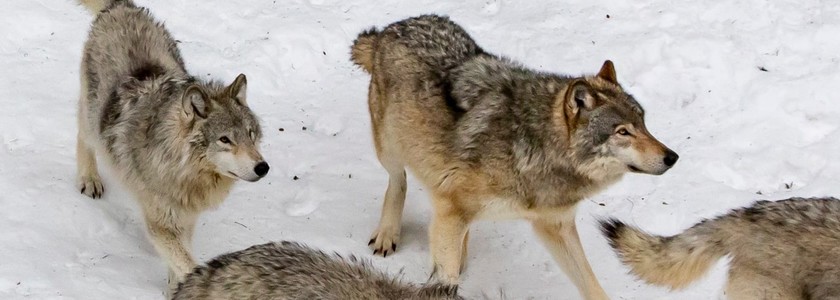

Wildlife Wednesdays: Pets and Coyote Mating Season
Our pets are special to us and we would do anything for them. That is why people with pets, especially those that roam outside, need to take extra precaution and watch them, as it is mating season for coyotes. Coyotes are mostly nocturnal, but, during mating seasons, they have been seen roaming around, even in neighborhoods! Coyote attacks are rare for humans, but your pets have an increased chance of being attacked during mating season. Even if you haven't seen one, that does not mean they do not live nearby. Coyotes are found in all states, except Hawaii, and have even been spotted in Mexico and Canada!
Coyote mating season begins in late December, but peaks in late February through March. In many parts of the country, Humane Societies have issued statements to not let your dogs out alone and not allowing your outdoor cats to wander. Male coyotes can be more aggressive during this time of year, which can pose a risk to your dog and other small pets that are outside, even just for a few short minutes. Owners with fences are still in danger as well. Coyotes are known to take the risk and jump over fences to attack small dogs, cats, and other small animals during this time of year. Coyotes are smart animals and "watch and learn routines". So, if you let your dog out every night at a certain time, make sure you go out with them, as the coyote could be watching. Also, this goes with walking your pet. If you walk your pet a a certain time, maybe switch it up, so the coyote, who could be watching, becomes confused. Also, ALWAYS walk your dog on a leash, close to you, and keep an eye on them and your surroundings at all times!
Another note from the Humane Society is to make sure to spay and neuter your pets. Coyotes are attracted and even can mate with unspayed or non-neutered dogs. Also, male dogs can be lured by the female coyote's scent, which are then killed by male coyotes.
In review, the Humane Society of the United States tells pet owners to follow two simple steps. 1: Watch your pets. Keep cats indoors and never leave small dogs outside unsupervised or let any dog out of your yard off leash. 2: Secure food sources. Store garbage in wildlife-proof containers and feed pets indoors.






